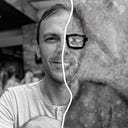Member-only story
The Meaning of Life, According to Science
Life’s a journey, not a destination. You can put it on a bumper sticker, but can you justify it?
Meaning implies connecting the small to a larger context. We don’t even need science to tell us the scale of the universe to realize that we are indeed small, which immediately leads to a feeling that we ought to be a part of something bigger than ourselves. So it’s no wonder many talk about things like transcendence and other cosmic mysticism when it comes to the meaning of life. We seek something beyond our individual lives, something that can give us a sense of purpose and significance in the face of our seemingly small and fleeting existence. But, from a scientific perspective, we find there is no grand design, no cosmic plan that bestows meaning upon our lives.
As we delve deeper into the mysteries of the cosmos, our scientific discoveries reveal a universe that is vast, ancient, and seemingly indifferent to our presence. The more we learn, the more we comprehend the staggering scales of time and space. Galaxies upon galaxies, each containing billions of stars, stretch out into an infinity that races away from us faster than the universe allows us to see. Our planet, Earth, is just one among countless more revolving around an ordinary star in an ordinary galaxy in a cosmic web woven…
